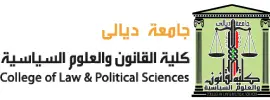Teaching English language at the Non-Departmental classes is a worldwide phenomenon. Because learning English and its introduction have received a great attention worldwide.
As we know, many colleges with various specialties have already introduced or want to introduce English as a subject of recognition in all classes and stages, often from stage I to the last stage of a discipline . The level of its introduction has now become a matter of college policy responding to students’ aspirations. The goals of English language learning at Non-Departmental classes are twofold: 1- the attainment of a basic proficiency, as is acquired in natural language learning and 2- the development of language into an instrument for knowledge acquisition.
Teaching English as an education has an important role in development in any field of study, a number of Commissions and Committees set up by the Government have given their recommendations and suggestions on teaching of English.
As language learning is not just a matter of acquiring the skills of listening, speaking, reading and writing but it consists of developing a communicative competence of these skills for English skills are now increasingly needed both for higher studies and employment after graduation. The place of English is not merely an educational issue, but it is also an issue of social change, personal advancement and national development.
English has become a symbol of people’s aspirations for quality in education and a fuller participation in national and international life.
However, the attitude of teaching English language has many problems and kind of a deficiency regarding . Thus, I try to depend on some procedures clarifying the way teachers should apply to bridging the gaps between students of Non-departmental classes and English language.
For teachers
Teachers should follow up some methods of teaching in order for them to achieve their goals of conveying the language properly as following:
1- Teachers should develop Class libraries/ library corners to promote the habit of reading amongst student and have debates of what they have read . They should create an input rich environment (short stories and novels) to make English learning enjoyable.
2-The teachers need to read books in English for an academic development, they should become members of libraries, English language groups or teaching associations.
3- Teachers need to be more creative in the use of textbooks, as textbooks cannot give everything. Lots of oral and written practice needs to be carried out using material beyond textbooks such as articles and essays written in the same discipline. Homework should be made to identify learning deficiencies and teachers should make efforts to address such deficiencies. Students need practice in asking a wide variety of questions (personal, comprehension, grammar and general questions).
Looking Ahead, there is a need for separate English Teacher Training Centre with training staff, facilities and resources to be set up in every college in order to achieve the objectives of having a developed society which has the ability to communicate with other cultures effectively.
By
Rafal Gh. Rasheed
Department of Political Sciences
